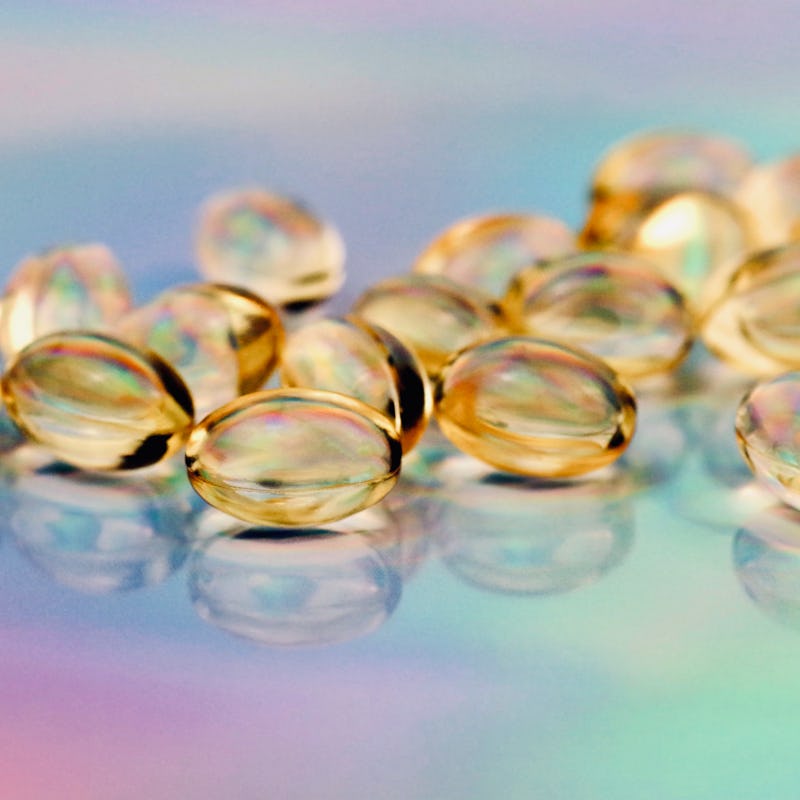Do supplements boost immunity? A doctor debunks the wellness claim
Sorry, Instagram.

We are living in an era of pandemic purgatory.
Covid-19 still rages through the world, but fully vaccinated and boosted people are at low risk of severe disease. States are dropping mask mandates are dropping throughout the country and warm weather signals a chance to return to at least some of the things we did in the Before Times.
Covid-19 or not, whenever we go out into the world, we rely heavily on our immune system to keep us safe from the pathogens we encounter out there. That’s why people who are immunocompromised have to be so careful. It is also why so many of us spend time, money, and energy trying to take care of our immune systems — but what’s the best way to do that?
Zachary Rubin, an allergist and clinical immunologist, explains there is a fundamental flaw in how we think about caring for our immune system.
“The whole term ‘boosting your immune system’ is inaccurate,” Rubin tells Inverse. “It’s a term used by the wellness industry to sell products that are wildly unproven scientifically.”
Can you boost your immune system?
The immune system is complex. But essentially, the immune system consists of two networks: The innate immune system and the adaptive immune system.
The innate system is the first line of defense against germs and other pathogens — it provides a general defense against germs. The adaptive immune system is a second, more sophisticated line of defense. It kicks into gear a little more slowly than the innate system, but when it does, it’s more targeted in its defensive action (for example, by releasing virus-specific antibodies to attack the pathogen).
Generally, immune reactions are protective — but that is not always so. As a consequence, trying to “boost” your immune response isn’t necessarily wise, Rubin says.
Most people can skip the supplements as long as they’re eating a healthy, balanced diet.
“I am an allergist and clinical immunologist. So from my standpoint, allergy is an abnormal immune response to a foreign substance; rheumatologists, study autoimmune disease, which is an abnormal immune response to normal healthy tissue,” he explains.
“If you’re going to ‘boost’ the immune system, you may actually cause more problems on the flip side by creating a hyperactive immune system.”
That’s something we’ve seen clearly in this pandemic. Some of the worst health outcomes aren’t the result of the virus itself, but instead, are the result of an overactive immune response called cytokine storms. These potentially fatal reactions occur when your immune system is trying so hard to attack the virus that it ends up engaging in some friendly fire and attacking healthy cells.
“Instead of thinking about how to boost our immune system, we should be thinking about how to keep our immune systems healthy,” Rubin says. Stronger is not necessarily better — instead, immune balance is more beneficial to long-term health.
Should you take supplements for your immune system?
Unless you have a medical condition, a well-balanced, nutritious diet should give you all the vitamins and minerals you need to maintain a healthy immune system, Rubin says.
“The wellness industry tries to sell you on supplements like elderberry and vitamins. Vitamin D is a big one. But there are risks to those,” Rubin explains.
“You don’t know necessarily what you’re putting in your body,” he adds because the U.S. Food & Drug Administration doesn’t regulate supplements for quality control like it does medication.
Assuming what is on the label is actually in the bottle, some supplements are safer than others. Take too much vitamin C and it will just flush out with your urine. That might leave you with “very expensive pee,” Rubin says. But other supplements are dangerous.
“Vitamin D can cause kidney stones if you take too much,” he says. “These things are not necessarily benign. Supplements are one of the most common reasons why people have liver damage.”
A predominately plant-based diet is one of the best ways to keep your immune system healthy.
Not only are some supplements potentially dangerous, but any benefit to the immune system is indirect at best.
“It’s not like you can supercharge your T cells with these different supplements,” Rubin says.
How to keep your immune system healthy
Supplements might not be the answer to a healthy immune system, but there are things you can do to keep yours in tip-top shape.
Rubin says there are four things that truly benefit your immune system:
- Sleep: There’s a reason you get tired when you’re sick — your immune system is working hard and it needs you well rested to function optimally. Making sure you get the recommended 7-9 hours of sleep most nights is a very effective way to help your immune system 24/7.
- Stress reduction: Stress is a powerful immune suppressant. Stress relief techniques like meditation can keep your mental and physical health on point.
- Regular exercise: Studies have repeatedly found that exercise keeps your immune system healthy and happy.
- A balanced, nutritious diet: The way to get the vitamins and minerals you need without swallowing a chalky pill is simple. Eat a predominantly plant-based diet with lots of fruits and veggies.
It’s tempting to reach for a pill and hope it will keep you protected from All The Bad Things, but it’s not how our body evolved to defend itself.
If you want to keep your immune system in fighting shape, forget about “boosting” it with pricey supplements and get back to basics: sleep, destress, exercise, and nutrition.
This article was originally published on